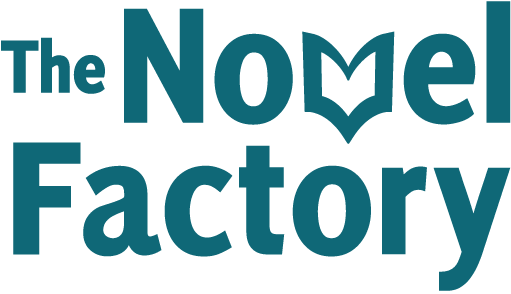Whether you’ve only just heard of Nanowrimo or you’ve attempted it multiple times before, this guide will help explain all you need to achieve your writing goals and write that first draft!
Click to jump to the information of your choice:
- What is Nanowrimo?
- Who runs Nanowrimo?
- What are the rules of Nanowrimo?
- How many pages is 50,000 words?
- Is Nanowrimo free?
- Can you do Nanowrimo not in November?
- What are the benefits of taking part in Nanowrimo?
- How do I join Nanowrimo?
- What is the prize for Nanowrimo?
- How do I plan my Nanowrimo Novel? (in October)
- 9 rules to follow to write your first draft in a month
- Surviving Nanowrimo – 30 tips for 30 days
- Life after Nanowrimo – turning your first draft into a final manuscript
What is Nanowrimo?
Nanowrimo stands for National Novel Writing Month. It's an initiative to encourage aspiring writers to stop procrastinating and get on with writing the first draft of their novel. The idea is to write 50,000 words in one month: November.
Who runs Nanowrimo?
NaNoWriMo is a non-profit organization that provides tools and community to help writers.

They run literacy, fluency and education programs around the world.
You can sign up on their website to officially take part in Nanowrimo. Advantages of this include the support of a community of writers attempting the same feat. There's also a sort of fitbit for your writing, where you can enter your wordcount each day and track your progress towards the ultimate goal. Achievement badges can help boost your motivation as well!
Participation of Nanowrimo has grown from a modest 21 in its first year, to a massive 306,230 in 2017.
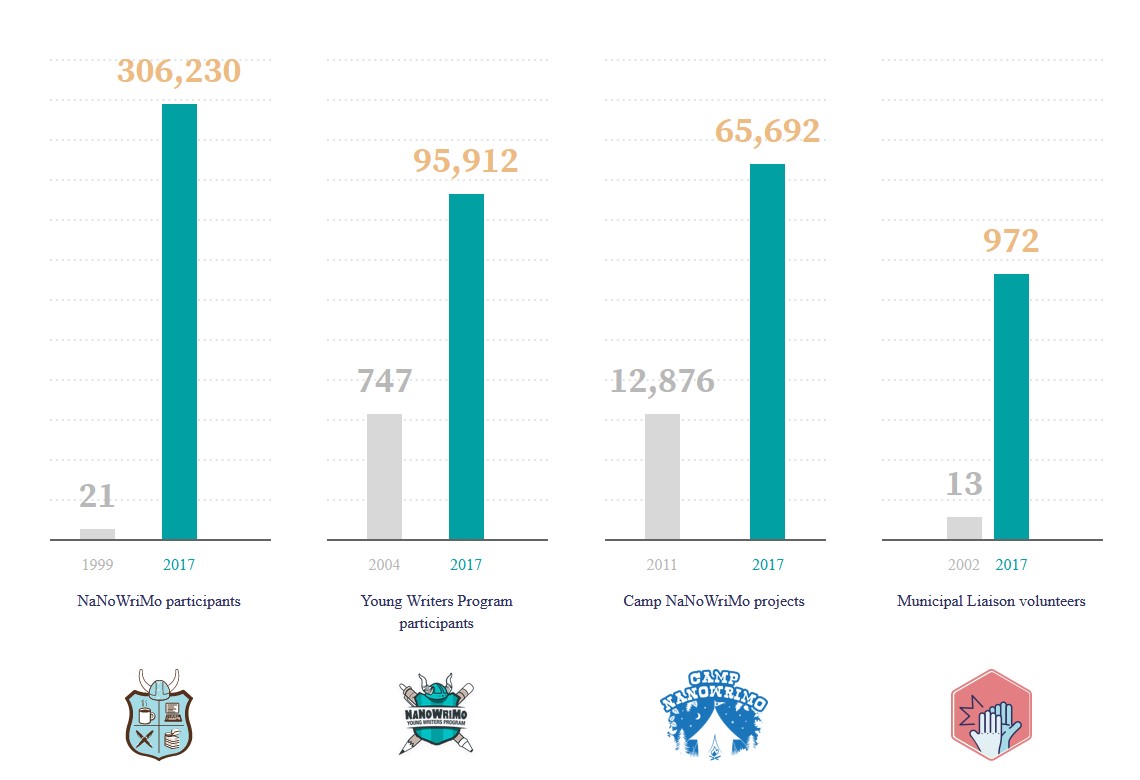
source: https://nanowrimo.org/what-is-nanowrimo
However, there's no obligation to officially sign up. You can always take part privately, without posting your work to the website.
What are the rules of Nanowrimo?
- Writing begins at 12 midnight on November 1st and ends at 11:59pm on November 30th.
- Participants are required to stick strictly to the timing. While you are allowed to carry out planning, not one word of the actual novel must be written before the start date, or after the deadline.
- The novel does not have to be complete - but it does have to have at least 50,000 words.
- All genres are permitted, including poetic and fanfiction novels.
How many pages is 50,000 words?
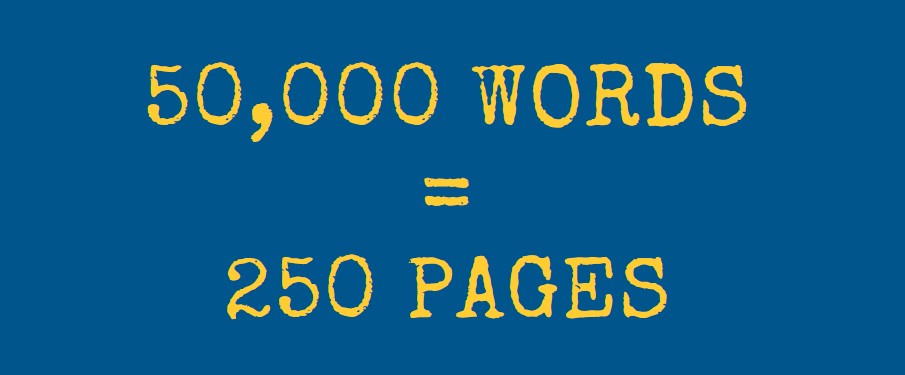
50,000 words is around 250 pages, depending on formatting - i.e. font size, line spacing, margins etc.
Is Nanowrimo free?
Yes. There is no fee to take part.
However participants who can afford to are encouraged to donate in order to help keep the organisation running into the future.
Can you do Nanowrimo not in November?
Yes. Just as there's no obligation to officially sign up, you can do your own novel writing month whenever you like.
However, you won't be able to take part in the community, and you won't get an official nanowrimo winner badge.
In our view though, the achievement of completing the 50,000 words is the real prize.
What are the benefits of taking part in Nanowrimo?
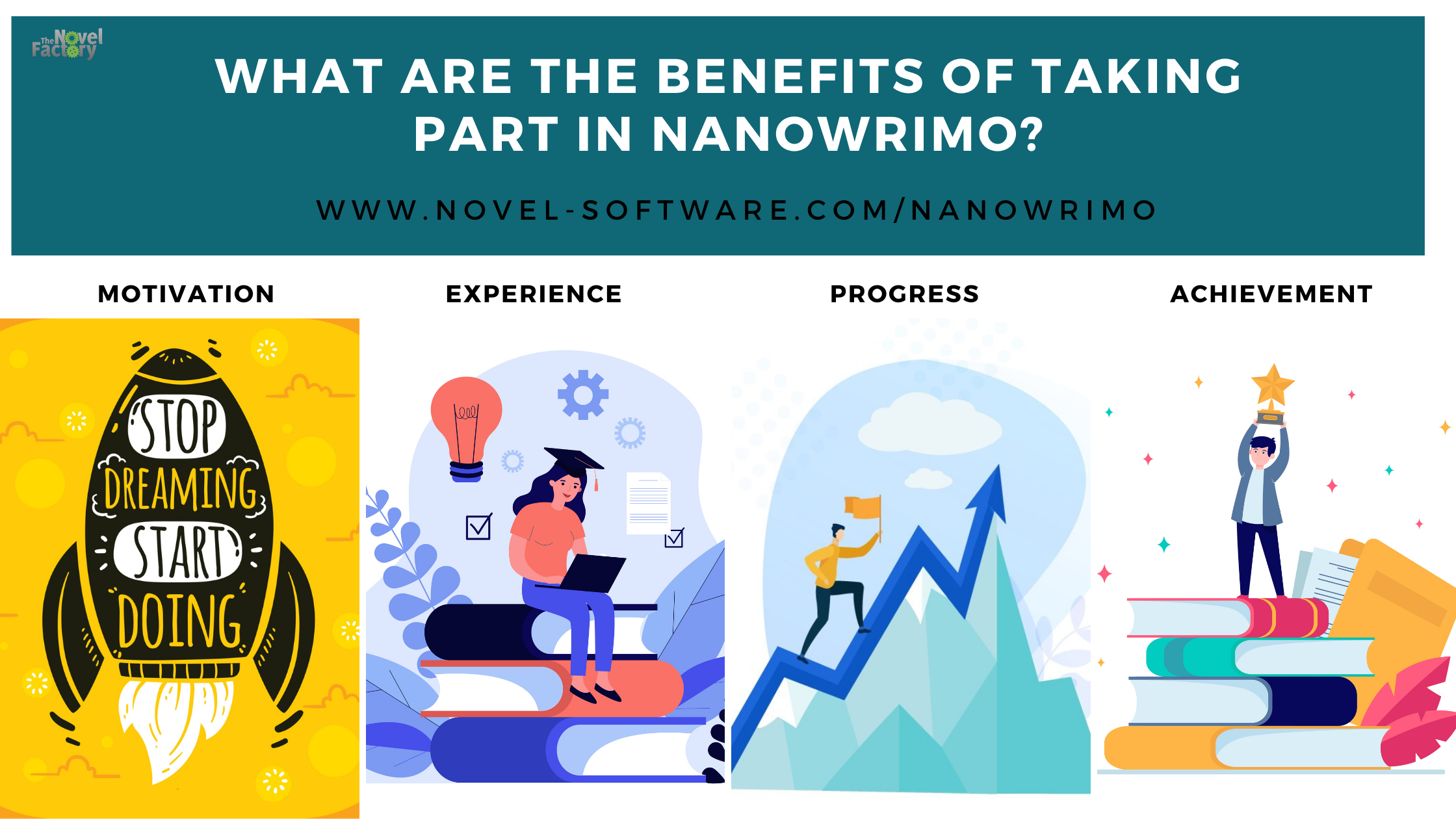
Motivation
Some of us need a little external motivation to really get the fire going under our backsides. We know that all we need to do is sit down and write, but somehow we never actually get round to doing it. Having a start date, a deadline and a set number of words to write all set by someone else, can have a magical effect on our motivation.
Experience
The best way to get better at writing is to write. It's been said that you have to write a million words before you start to be any good. This 50,000 will be a great start.
Progress towards a completed novel
Once you have your first draft under your belt, you’re in a much better position to start editing and improving, and getting closer to that all coveted prize – the final manuscript.
Achievement
If you succeed in completing the 50,000 words (especially if it’s your first time writing such a volume), then the sense of achievement is fantastic. Not only the sense of it – having the first draft is an actual, tangible achievement to be proud of.
How do I join Nanowrimo?
You can sign up to participate officially in Nanowrimo here.
But before that, you may wish to find out more about NaNoWriMo the organisation here.
What is the prize for Nanowrimo?
If you register on the official website, and complete your 50,000 words in the alloted time, then you'll be awarded a Nanowrimo Winner badge.
However, the real prize is the accomplishment of having completed the first draft of your novel!
How do I plan my Nanowrimo novel? (in October)

Don't leave your nanowrimo success to chance - if you want to give yourself the best chance of achieving the goal of 50,000 words in one month, preparation is the key.
The quickest way to find yourself suffering writers' block or writing yourself into a blind alley and getting trapped there, is to start on day one with no plan and no idea what you're going to write.
On the other hand, if you have diligently outlined your novel, briefed your cast of characters and maybe even researched a few locations, then you will be able to fully concentrate on the most important thing - bashing out those words.
Below is a plan for getting together a solid basis for your first draft. We recommend you do this in October, so everything is fresh and you're raring to go just as Nanowrimo starts.
Note - all of the notes below are that - notes. You mustn't write a single word of prose before Day One or you'll break the nano spell and the nano fairies will come and slap you on the wrist. Your writing wrist.
Click on the steps for more information about each one.
Day #3 Write character introductions
Day #4 Write your Short Synopsis
Days #5 and #6 Write your extended synopsis
Days #7 and #8 Write your Goal to Decision Cycle
Days #9 to #11 Complete Full Character Profiles
Days #12 and #13 Describe your locations
Days #14 to #17 Do your Advanced Plotting
Days #18 to #21 Write your Character Viewpoints
Days #22 to #24 Block out Your First Act
Days #25 to #26 Consider Themes and Variations
Days #27 to #28 Block out Your Second Act
Days #29 to #30 Block out Your Third Act
9 Rules to follow to write your first draft in a month
I’ve completed nanorimo more times than I can count now, and these days I finish with days to spare, with a kind of "Oh, was that it?"
I’ve done it while working full time, walking a dog twice a day, running a writing group, and I haven’t even given up yoga.
The idea of writing 50,000 words in 30 days doesn't give me the fear anymore - it doesn't even feel like a strain.
So, what’s my secret?
Following a few simple rules...
1. Your target is 2,000 words per day
Forget about 50,000 words. It’s an unmanageable number to mentally process. From now on I want you only to think about 2,000 words per day. 2,000 words a day. That should be your mantra. If you average about 2,000 words per day, you even get to have a few days off.
2. Put everything else on the backburner
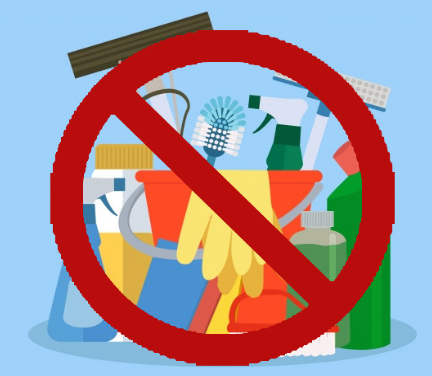
When you have a newborn baby, you will often be advised to let the housework slide, get more takeaway, don’t worry about keeping up appearances. Well, nano is now your baby. These days I don’t have to give up any of my day to day things to get nano in the bag, but the first time I did it, I gave myself permission to ignore everything else – as far as possible. You probably ought to still feed the kids.
3. Have an outline ready
This is the most important part. The only way you can be sure of getting through Nanowrimo without having any panic moments of staring at a blank page or feeling the fear as the minutes pass by and no words appear in front of you – is to already have a pretty clear outline.
There are various ways to prepare an outline for a novel. You could use genre templates, follow the Roadmap steps, or by inspired by these 25 ideas from the inimitable Chuck Wendig. Do what works for you, but ideally, before you sit down on the 1st November, you will have a list of scenes, with at least a few sentences describing the gist of each one.
4. Spend the entire month drunk
I don’t mean that.
I’m referring to the (supposed) Ernest Hemingway quote: 'Write drunk, edit sober', but actually alcohol is entirely beside the point.
The potential advantage of drinking is the reduction or removal of inhibitions - or in the case of writing: your inner critic.
There is plenty of time in writing a novel for editing, checking over, being a perfectionist, but - and I can't state this strongly enough - the first draft is NOT that time.
Trying to get everything right is probably the biggest reason people never finish their first novel, and if it's not finished, then it's definitely not perfect.
It's imperative you just steam on through, and never look back. Don't edit, don't even read it. Don’t worry about elegant metaphors, sensible sentence structure or even – dare I say it – accurate grammar.
Anything that is not writing words is wasting precious time that could be spent writing more words.
This is probably the most valuable piece of advice regarding writing your first draft in a month.
5. Just one more sentence
Write this on a post it note (or something that’s actually sticky) and stick it up above your desk. When you’re about to stop writing, read it and do it. Just one more sentence. Go on. Just one more.
6. Compare and get competitive
The first time I did Nanowrimo, I didn’t actually sign up to the website. But my partner (who was also doing it) and I drew two thermometers on a piece of A3 paper and stuck it up on the wall. Whenever we wrote some words, we would take a black marker pen and fill in the bottom of the thermometer up to a mark that corresponded with how much we’d written. When the thermometer was completely filled in, it meant we’d written 50,000 words.
You could feel the tension rise in the room every time one of us got up to fill in a bit of the thermometer, and the sweat on the brow of the other person as they furiously increased their tapping.
The desire to be slightly ahead of another person is far more powerful than the desire to reach a given number.
If you don’t have someone in your house also doing the challenge, then touch base every day with a writing friend who is, or sign up to the official site.
7. Get up 20 minutes early

I’m not a morning person, trust me, I wouldn’t recommend this if I didn’t really think it was worth it. But if you can get 500 words done before you even have breakfast – hey, before you even brush your teeth – then you’ll be off to a buzzing start to every day.
8. Disconnect
From the Internet, from your phone, from all social media. The only exception is the few minutes to check in with your Nanowrimo buddy, if that’s what you’re doing. The Internet is the novel writer’s friend, but not when you’ve got a first draft to get out.
9. Book in a binge writing weekend towards the end of the month
If possible, get a cottage in the middle of nowhere and bring a giant spaghetti bolognese so you don’t even have to cook (or even have the chance to waste time selecting a pizza). Having two or three days to get your head down and thrash out the last five thousand words could be the difference between success and failure.
Do you have rules you follow that help you win Nanowrimo? Share your tips and tricks in the comments!
Surviving Nanowrimo – 30 tips for 30 days

Are you on Twitter? We share these tips daily during Nanowrimo on our twitter account, so follow us there to receive these as a drip feed!
- Nanowrimo Tip No. 1 = NEVER LOOK BACK
- Nanowrimo Tip No.2: What is the protagonist's goal in each scene?
- Nanowrimo Tip No.3: Do you give your protagonist time to react to the conflicts and disasters they experience?
- Nanowrimo Tip No.4: You need to write an average of 2000 words per day, and that gives you a few days off.
- Manageable goals.
- Nanowrimo Tip No.5: Give yourself rewards for reaching targets, such as 5,000 or 15,000 words.
- Nanowrimo Tip No.6: Give yourself a day off after 10 days - you will come back the next day much more refreshed and effective.
- Nanowrimo Tip No.7 Don't worry about grammar, punctuation, avoiding cliches or anything like that. That can all be fixed later.
- Nanowrimo Tip No.8 Get your writing done early as possible rather than leaving it until the end of the day when you're tired.
- Nanowrimo Tip No.9: Can you get up 30 minutes early to get a few hundred words done before the day? It's only for one month...
- Nanowrimo Tip No.10 Don't waste time thinking of the perfect name, just use anything, with the intent to change it later
- Nanowrimo Tip No.11: Let the house go to ruin - housework can wait - it's only one month!
- Nanowrimo Tip No.12 Got writer's block? Try freewriting - nonsense braindumping to break you out of it
- Nanowrimo Tip No.13 Stuck? Try thinking about a scene from the POV of a different character
- Nanowrimo Tip No.14 Getting bogged down? Take a walk - exercise gets the blood in your brain flowing.
- Nanowrimo Tip No.15 Remember you're just shovelling sand into a box so later you can make sandcastles!
- Nanowrimo Tip No.16 As Ernest Hemingway (probably) said: 'The first draft of anything is shit' - so don't dwell, get it under your belt!
- Nanowrimo Tip No.17 Don't read back what you're written - there's no time for Pete's sake - just keep writing!
- Nanowrimo Tip No.18 You'll be hitting the wall around now - stay strong, keep thinking on the light at the end of the tunnel
- Nanowrimo Tip No.19 Remember the mantra: Just one more sentence, just one more sentence...
- Nanowrimo Tip No. 20. Plot and characters running rampant? Let them! You can rein it all in on the 2nd draft.
- Nanowrimo Tip No.21 If you're getting stuck for ideas, why not try exploring the backstory of a supporting character?
- Nanowrimo Tip No. 22 First drafts are for discovery, so let your imagination loose of its harness!
- Nanowrimo Tip No. 23 2,000 words a day. That is the mantra of the nanoer.
- Nanowrimo Tip No. 24 Now is not the time for editing, so don't worry about typos or cliches. In fact, wallow in them (for now)
- Nanowrimo Tip No. 25 2k a day, 2k a day. Just keep repeating after me: 2k a day, 2k a day (That's easier to say than type)
- Nanowrimo Tip No. 26 No TV. No Facebook. No Netflix. No Twitter (no, wait...) You can survive without for a just a few days!
- Nanowrimo Tip No.27 Just... one... more... sentence...
- Nanowrimo Tip No.28 You might need to pull and all-nighter if you're a bit behind - don't give up now!
- Nanowrimo Tip No.29 Running out of ideas? Change to a different POV character and write an existing scene from their point of view…
- Nanowrimo Tip No.30 Final day! Hopefully you'll just be staggering to the finish line now - if so CONGRATULATIONS!
Life after Nanowrimo – turning your first draft into a final manuscript
I've heard it said that literary agents groan at the beginning of December, because they know that they're about to get inundated with scrappy manuscripts created by excited writers during Nanowrimo. I daresay Amazon data would bear out a similar pattern when it comes to self-published ebooks.
But while you may be excited, even euphoric, about having completed the first draft of your novel (and you well should be - it's a great achievement) try not to damage your chances of becoming a successful author by jumping the gun.
At the end of Nanowrimo, you do not have a complete novel.
I repeat - you do not have a completed novel.
What you do have is a first draft.
This could be the first draft of a novel that will be published one day and become a bestseller - you wouldn't be the first.
However, there's a lot more work to do before then.
There's no set number of drafts that you have to go through before your novel is finished, but a realistic expectation would be to have at least three more iterations. Here is a brief overview of what you might want to focus on while redrafting your masterpiece.
Second Draft
If you carried out your frenzy of writing by spinning ideas from thin air, without any kind of plan or outline, then now you'll need to go through and dig out the good bits of your story to see where the plot is.
However, if you did the planning we recommend before you began, then your first draft should be reasonably robust structurally, without too many gaping plot holes.
Once you've had a once over of the high-level structure, now is the time to rewrite each scene while considering: sentence structure, balance, pace, vocabulary and style.
Third Draft
By the time you get to your third draft, your novel should be in pretty good shape. You might have seen some themes start to emerge and your supporting characters may have insisted on their own sub-plots. Now is the time to consolidate and fine-tune these, and well as thinking about foreshadowing, symbolism and making sure your characters' relationships are nuanced and multi-layered.
Final Draft
The final draft isn't really a single thing. It's more an extended period of tweaking, polishing and perfecting. You need to go over every word with a fine-toothed comb, stitch up a thread here and bite out a loose fray there. You know you're done when you absolutely can't bear to look at it anymore and wish you'd never started. Until that point - keep editing.
If you've made it this far, you might be ready to submit to agents or self-publish.
